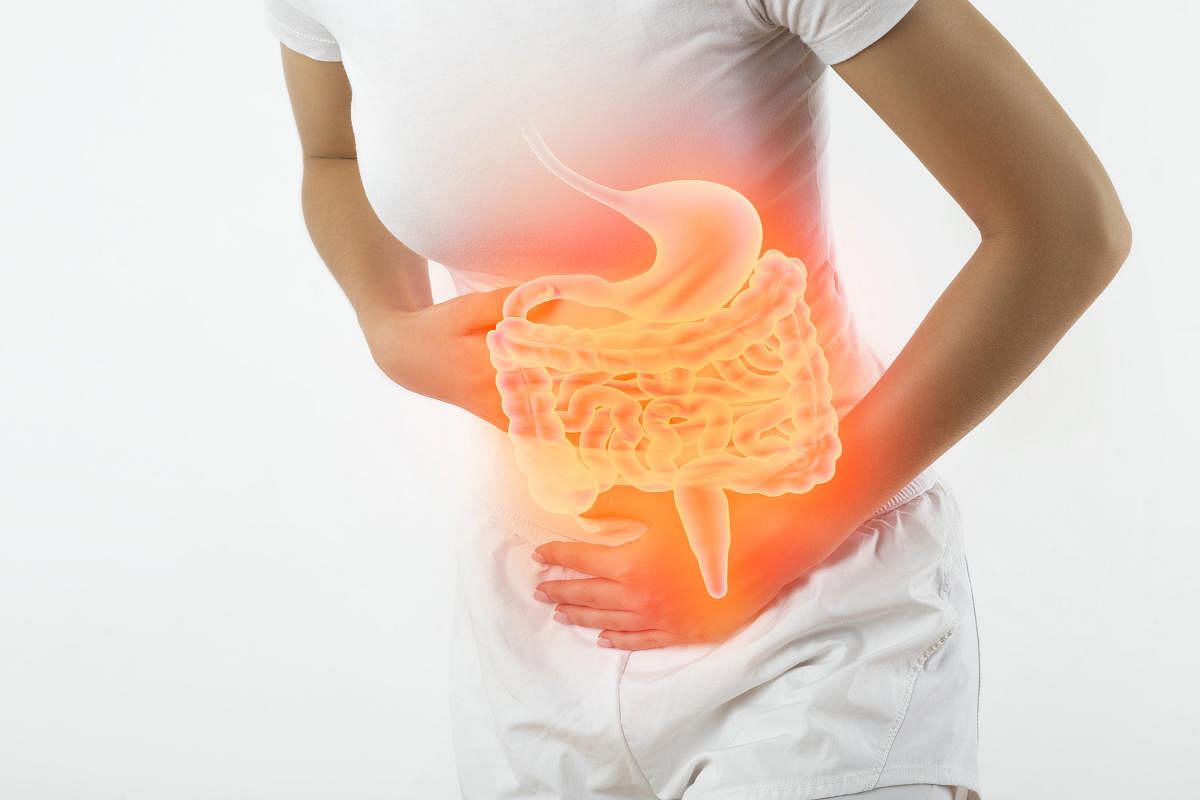
Gastroparesis (also known as delayed gastric emptying) is a condition wherein food stays within the stomach for a longer time than intended. Normally, after we eat food, 90% of the food content in the stomach gets emptied into the small intestine within four hours. In gastroparesis, the normal spontaneous movement of the muscles (motility) in your stomach gets affected.
The symptoms include heartburn/ gastroesophageal reflex, abdominal fullness/ abdominal bloating, abdominal pain, early satiety, lack of appetite/ weight loss, nausea/ vomiting and constipation.
Most of the time, the exact cause may not be found. However, common causes which lead to the slowing of stomach movement include diabetes.
The following can also lead to gastroparesis:
Gastroparesis can show up after abdominal surgery.
If a patient is suffering from connective tissue disorders (a disorder that affects the skin, blood vessels, skeletal muscles, and internal organs) like scleroderma, amyloidosis, Sjogren’s syndrome, polymyositis, and others.
Some medications like narcotics, antidepressants, antihypertensive medications (calcium channel blockers), and certain other viral infections like CMV (Cytomegalovirus), and EBV (Ebstein Barr Virus). People with neurological disorders like Parkinson’s disease, multiple sclerosis, Myasthenia Gravis, dysautonomia, stroke and others, malignancy of the pancreas, lymphoma, and others.
Chronic kidney disease.
Diagnosis is usually done after a thorough medical history and physical examination.
However, few tests are done to rule out other conditions as well. Usually, few blood investigations are done including blood sugar and thyroid hormone levels. Blood tests are also done to uncover dehydration, malnutrition, kidney function and infections.
Endoscopy: Upper gastrointestinal endoscopy is usually performed in all suspected cases to rule out any mechanical obstruction like the stomach or duodenal ulcer or stomach cancer.
Barium X-ray: The patient is asked to drink a special liquid (barium), which coats the esophagus, stomach, and small intestine and shows up on an X-ray. This is also known as an upper GI (gastrointestinal) series or a barium meal.
Gastric scintigraphy (Radioisotope gastric emptying scan): This is considered the gold standard for diagnosing gastroparesis. In this test, a meal that is tagged with a radioisotope is asked to be ingested. A nuclear scan is taken at one, two, and four hours. Here, the patient is made to lie down under a scanning machine which can detect the radioisotope containing food. If more than 10% of the meal is still present in the stomach at the end of four hours, a diagnosis of gastroparesis can be made.
Capsule endoscopy (wireless motility capsule): This is a procedure wherein a patient is asked to swallow a capsule with a camera in it. These capsules measure 2.6mm and are indigestible. It records Ph, temperature, and pressure around it. Ph in the stomach is acidic but when it enters the small intestine it is alkaline. By this, we can estimate the time taken for the capsule to pass from the stomach to the intestine. If the capsule stays in the stomach for more than 5 hours, gastroparesis needs to be considered.
Electogastrography (EGG): Like ECG which measures the electrical activity of the heart, EGG measures the electrical activity of the stomach.
Other tests are antroduodenal manometry, gastric emptying breath tests and others.
Complications include dehydration, malnutrition, bacterial overgrowth, and difficulty in controlling diabetes. Sometimes food can harden to form a mass called bezoar. This in turn can block the passage of food.
Treatment includes management of symptoms, correction of nutritional deficiencies and treatment of the cause. Control underlying causes like diabetes, thyroid or other neurologic conditions.
Have more liquids and low-residue foods, avoid a high-fat diet, eat small quantities and eat more frequently. A feeding tube may be required to bypass the stomach in extreme cases.
Prokinetics which improve the movement of the stomach like metoclopramide, domperidone, and others may be helpful. Newer medications like Ghrelin are emerging as well.
An injection of botulinum toxin into the stomach may be helpful. Balloon dilatation of pylorus (junction between stomach and intestine) or placement of metal stents may be helpful.
Gastric POEM (peroral endoscopic myotomy) is something new as well (muscle is cut endoscopically). Gastric electrical stimulation involves electric shocks given to the stomach muscles. Surgeries like gastric bypass can be tried in refractory cases.
(The author is a chief consultant gastroenterologist & hepatologist with a leading chain of hospitals in Bengaluru.)